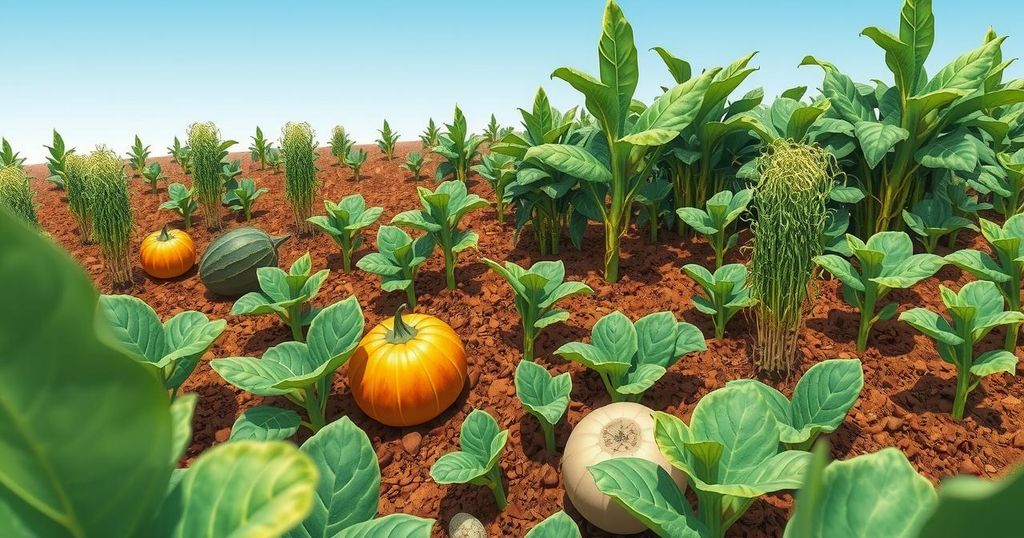Climate change threatens to reduce global food production by up to a third, particularly in low-latitude regions, potentially risking half of crop yields. Key crops such as rice and maize face shrinking areas for growth, affecting food security significantly. The study calls for urgent action to mitigate climate change and adapt agricultural practices to safeguard the food supply.
A recent study published in Nature Food indicates that climate change may jeopardize up to one-third of global food production. Researchers from Aalto University in Finland evaluated how alterations in temperature, precipitation, and aridity would affect the growing conditions for 30 essential food crops worldwide. The findings revealed that rising temperatures could significantly reduce land available for vital crops such as rice, maize, and wheat, which together provide more than two-thirds of the world’s food energy.
The impact of climate change will disproportionately affect low-latitude regions, with potential crop production losses of up to 50% as climatic conditions deteriorate, leading to diminished crop diversity. Sara Heikonen, the doctoral researcher who led the study, emphasized that reduced crop diversity would significantly hinder food security, complicating access to essential calories and protein.
Tropical root crops, including yam, essential for food security in low-income regions, as well as cereals and pulses, are particularly susceptible. In sub-Saharan Africa, where the effects will be most pronounced, nearly 75% of current production could be threatened if global temperatures rise beyond 3°C. Conversely, mid- and high-latitude regions may see retained productive land and increased crop diversity, with new growth possibilities in northern areas.
Matti Kummu, a senior author of the study, highlighted that favorable climate conditions in some areas might still be offset by the emergence of new pests and extreme weather events that complicate agricultural practices. Heikonen further noted the vital importance of addressing climate change through both mitigation and adaptation strategies. The interconnectedness of the global food system means that even regions experiencing minimal changes will ultimately feel the wider effects, necessitating collective action to resolve these critical issues.
This study underscores the severe impact of climate change on global food production, particularly in low-latitude regions, where up to half of crop yields may be threatened. The potential loss of crop diversity calls for immediate actions to address food security challenges. Mitigating climate change and adapting agricultural practices will be essential in ensuring an adequate food supply for the future. A collaborative effort is required to combat these pressing challenges in the globalized food system.
Original Source: www.aa.com.tr






